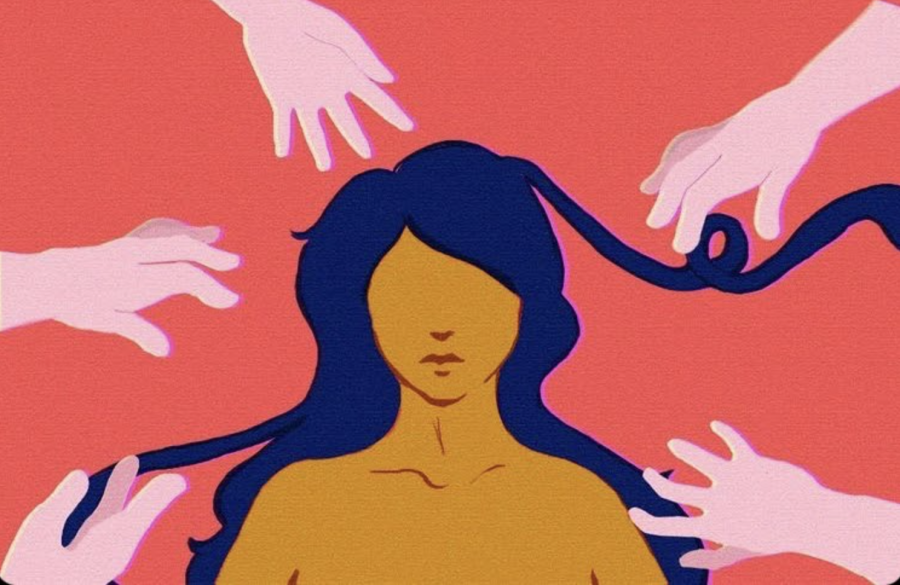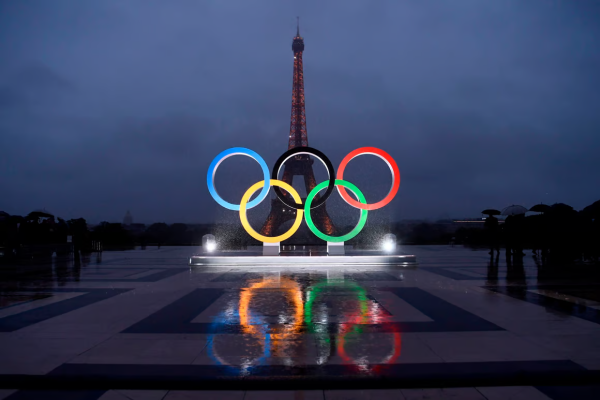Asian Women are Not Yours
As a teenage girl of Korean and Chinese descent living in America, I am thankful for living in a country where there is so much diversity and love towards people of color and minorities. However, there has to be a line drawn between love and fetishization. Asia has had an enormous impact on American culture and trends such as K-Pop, anime, and classical plays; however, with this progression has also come of the unhealthy attraction towards asian women. Fetishes– a form of sexual desire in which gratification is linked to an abnormal degree– are absurd and harmful, especially towards asian women.
I do appreciate when I get complimented about my looks and when others tell me they appreciate my culture, but at the same time I despise when people only compliment because they see me as asian. They rather compliment and adore the fact that I am asian rather than my personality or specific features. This is not just demoralizing, but horrifyingly uncomfortable.
My ancestors were stereotyped from the very beginning when migrating to this country, we were seen as only catering to sexual needs.
Asian women have already been fetishized and hypersexualized for years ever since the 1800s when Chinese immigrants began migrating to America. Before the Chinese Exclusion Act of 1882, another act was passed called the Page Act of 1875. The Page Act at the time ultimately banned Asian women from coming to America because they feared that the women would engage in prostitiution throughout the country, rather than them trying to seek asylum and safety from the political problems in their home countries.
Additionally, as time and the entertainment industry progressed, so did the growing obsession with asian women. The entertainment industry has profited and stereotyped asian women into this trope as being, “submissive” or “foreign”, especially when US-led wars in Asian countries began.
A piece of entertainment that greatly depicts this idealism is the 1904 opera, “Madame Butterfly.” Within the play a 15-year-old Japanese geisha named Okichi is purchased as a temporary wife for an American man named Townsend Harris and is most commonly used for sex. A geisha is more known as a Japanese prostitute for men. The opera shows Okichi as an asian female that is childlike and “a little toy” to her husband Harris. It is also shown that she is overjoyed to get married to a rich American man and that she submits and relies on everything he does. Eventually, he becomes richer and leaves her to go back to America, while she mourns over him and eventually commit suicide over him.
This is greatly problematic because the success of this opera led to more entertainment pieces themed for an Asian woman to fall for a white man to save her. This era inspired most modern TV programs and movies to not accurately depict asian women, it rather shows harmful stereotypes. The main stereotype being an American man always shown as the savior, while the asian woman is shown as helpless and “needs” the saving of a white man. Viewers over the years began to believe that asian women were always accommodating to white men and seen as “submissive” thus creating the common stereotype for them today.
Nowadays, Japanese animated shows, anime, have been the talk of many of my peers and others among Gen X and Z. Though I personally indulge and hold my own fondness for watching it, the problem with anime is that most of the industry incredibly sexualizes women. Often women are shown with large breasts, short outfits, and with abnormal body types to appeal to the male gaze. This oversexualization ties in with asian women because many people believe that anime women look asian. We are seen more as sexualized animated characters rather than real people.
Asian women are not “submissive,” “exotic,” “oriental,” or “foreign.” We are not waiting to be saved by a white man or look anything like an anime character. I am not relying on anyone to save me, and I do not look like anyone or anything else but me. Do not ever categorize us as anything else but ourselves. We are not yours. I am not yours.







